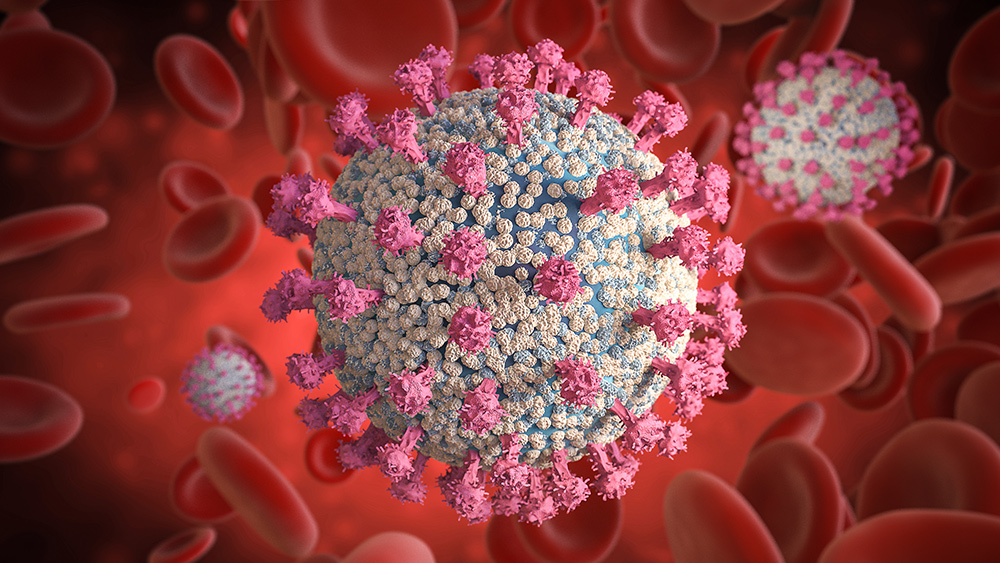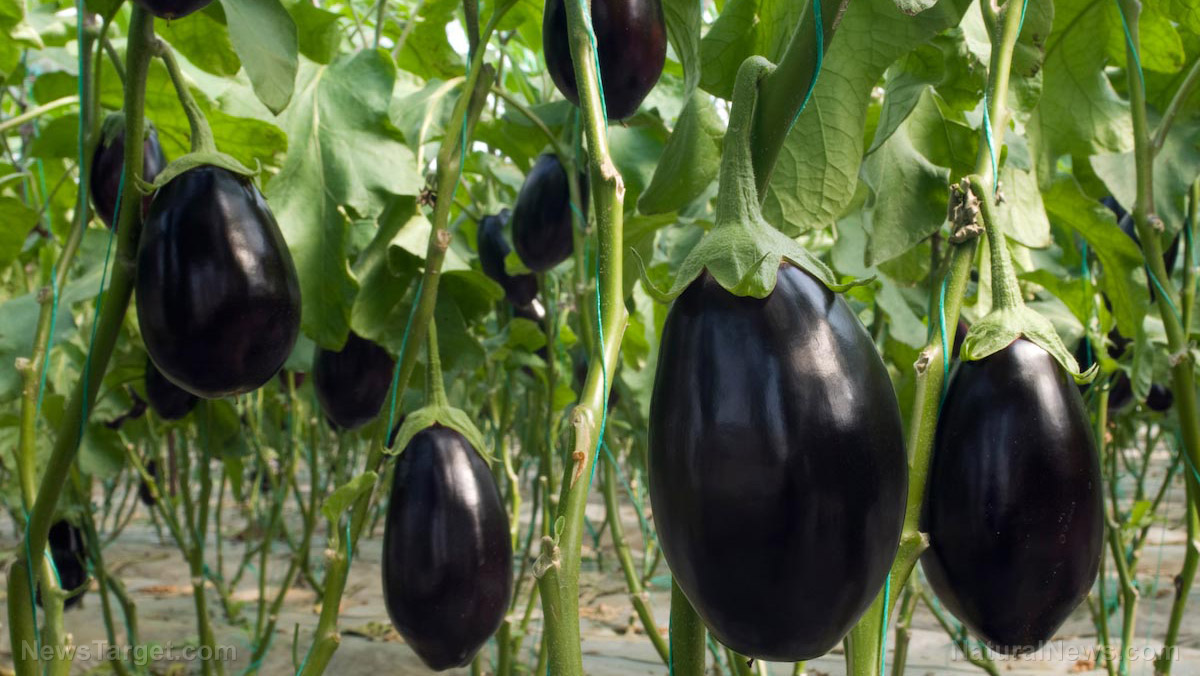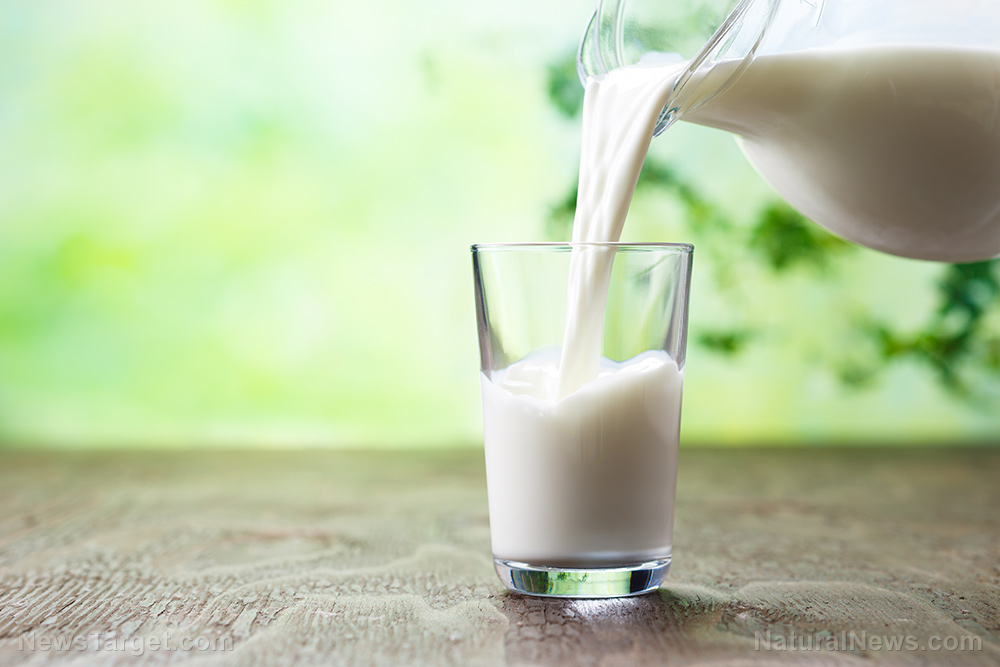Groundbreaking study uncovers nutrient gaps in Alzheimer’s brains
08/09/2025 / By Willow Tohi

- Alzheimer’s brains show significantly lower levels of antioxidants like lutein, zeaxanthin and vitamin E compared to healthy brains.
- Following the MIND diet reduces Alzheimer’s risk by up to 50% and correlates with higher nutrient levels in brain tissue.
- Carotenoids, abundant in colorful produce, combat oxidative stress linked to Alzheimer’s progression.
- Antioxidant-rich foods like leafy greens, tomatoes and nuts are vital for brain health.
- Emerging research shifts focus to lifestyle and diet as prevention tools for cognitive decline.
A striking study published in the Journal of Alzheimer’s Disease has revealed critical nutritional differences between the brains of Alzheimer’s patients and healthy individuals. Researchers from Rush University’s Memory and Aging Project found that Alzheimer’s brains have up to half the levels of key antioxidants, including lutein, zeaxanthin, lycopene and alpha-tocopherol (vitamin E) as health brains. This confirms a long-suspected link: diet plays a pivotal role in either protecting against or accelerating cognitive decline.
The study followed over 1,000 subjects for more than a decade, tracking their diets, cognitive performance and postmortem brain pathology. Participants adhering to the MIND diet — a hybrid of the Mediterranean and DASH diets emphasizing plant-based foods, healthy fats and nutrient-rich ingredients — showed a 50% lower Alzheimer’s risk and fewer brain lesions associated with the disease. “This isn’t just about preventing memory loss. It’s about maintaining brain vitality over a lifetime,” said Dr. C. Kathleen Dorey, co-author of the study.
Unpacking the study: A decade of data on diet and dementia
Using advanced biochemical analysis, Rush researchers dissected brain matter from both Alzheimer’s patients and cognitively healthy donors. They discovered that disease-affected brains had stark deficiencies in carotenoids, a group of plant-based antioxidants known to neutralize oxidative damage. “Oxidative stress is a major contributor to Alzheimer’s pathology,” Dr. Dorey explained. “These nutrients act as frontline defenders against the cumulative harm that leads to nerve cell death.”
The MIND diet — which prioritizes leafy greens, berries, nuts and olive oil while limiting red meat and processed foods — emerged as a standout strategy. Participants whose diets aligned most closely with its guidelines not only delayed cognitive decline but also reduced Alzheimer’s-related brain abnormalities. “The results are consistent with population studies showing that antioxidant-rich diets lower risk,” said neuroscientist Dr. Dean diets, noting the diet’s practicality for everyday use.
The role of antioxidants: Your brain’s natural armor
Carotenoids like lutein and zeaxanthin accumulate in the brain and retina, acting as shields against free radicals. “Imagine your brain is under constant slow-burn damage,” said nutritional researcher Toby Amidor. “Antioxidants essentially put out these fires before they spark larger problems.”
The study’s surprising finding was an unusual metabolite present in higher concentrations in Alzheimer’s brains. While its exact role remains unclear, scientists speculate it could be a marker of metabolic dysfunction. Meanwhile, lycopene (found in tomatoes) and retinol (a form of vitamin A) were also depleted in diseased tissue, highlighting the complex interplay between nutrients and brain health.
Dietary strategies for brain resilience
The takeaway for consumers is clear: color your plate with produce. Lutein-rich foods like spinach and pistachios or zeaxanthin-dense egg yolks and corn should be staples. Vitamin E-heavy sunflower seeds and almonds further bolster defenses. Dr. Dorey emphasizes that “small changes matter.” Even adding a handful of berries or swapping butter for olive oil can shift nutritional balance.
The MIND diet provides a roadmap:
- Eat three daily servings of whole grains.
- Prioritize leafy greens (at least six servings weekly).
- Incorporate berries, nuts and legumes regularly.
“I tell patients to think of each meal as a brain-support system,” said geriatric dietitian Roxana Ehsani. “The right foods don’t just feed your body—they build resilience in the brain.”
A shift in aging science: Natural remedies work
The study underscores a paradigm shift in Alzheimer’s research. Earlier assumptions often centered on genetics or pharmaceuticals, but lifestyle factors like diet are now seen as critical. “Genetics loads the gun, but environment pulls the trigger,” said dementia researcher Dr. David Amick. With less than 1% of Alzheimer’s cases tied to inherited mutations, the focus has shifted to modifiable risks.
Despite these insights, challenges persist. Only one in 10 Americans eats enough vegetables, according to the CDC, and pseudoscience often overshadows evidence-based advice. “People flood my inbox asking about ‘brain-boosting’ supplements, but whole foods are where the real power lies,” Dr. Dorey said.
Nourishing brains for the long haul
As life expectancy rises, the stakes for cognitive health have never been higher. With 5.3 million Americans already living with Alzheimer’s, the stakes are urgent. This study offers hope: by choosing carotenoid-rich foods, individuals can stack the odds in their favor.
“We can’t wait for a cure,” Dr. Dorey concluded. “The evidence is clear—our plates hold the key to preserving memory, reasoning and the essence of who we are.”
Sources for this article include:
Submit a correction >>
Tagged Under:
alternative medicine, Alzheimer's, antioxidants, Brain, brain function, cognitive performance, dementia, food cures, Fresh, grocery, longevity, mental, mind body science, natural cures, nutrients, plant medicine, prevention, research, Veggies
This article may contain statements that reflect the opinion of the author





















